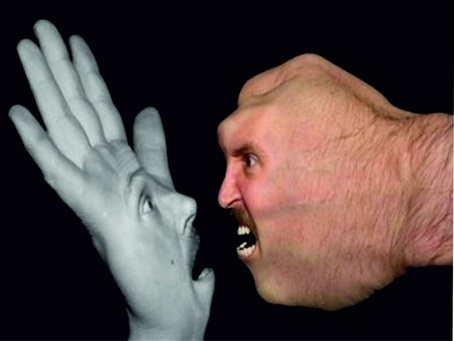
Power tends to corrupt, and absolute power corrupts absolutely.
Lord Acton
Hate crimes are violent acts induced by prejudices against a person or group considered “different,” owing to their social class, race, ethnicity, nationality, political affiliation, ideology, gender, sexual orientation, religion, or disability. Modernity has driven the legislative powers of many countries to establish judicial standards to combat those types of crimes and to prosecute the perpetrators. This has entailed a reduction of such abuses, which are provoked also by the social context of the persons or groups, and by the stereotypes created by societies.
In Cuba, the official and propaganda media of the regime inform us about hate crimes that are committed “in capitalist countries,” of course. Thus, the Cuban population knows of those violent behaviors that occur in places where there are no military conflicts and which are miles away from their security and wellbeing — rather than those that could be occurring at that moment in their own environment, just inches from their own backside, or at just a hair of separation from their own head.
The reports don’t reach Cubans directly or unadulterated, but rather strained through the proselytizing sieve of the state analysts. It is the same hatred, its collar placed by the official discursive demagoguery and the rulers of some countries, who because of rampant special interests — often personal, partisan or group-based — are aligned with the Cuban dictatorship.
Ever since the Castros rose to power in 1959, they have relied greatly on incentivizing, for their own benefit, this type of conduct classified as a crime in the penal codes, and even in the constitutions, of some countries. The Castros utilize this criminal behavior as propaganda, and as political confrontation and victory.
Years of repeating the same modus operandi with total impunity confirm this. While they deny one part of the society the exercise of its freedom of expression, they reward pro-government gangs when these behave in a criminal fashion that favors the authorities.
In my country, where strikes are prohibited de facto, where almost everything is directed by the authorities and nobody dares to perform that type of discriminatory violence without the consent of the government, the historic Cuban leader — retired since 2006 — has on more than one occasion called upon the citizenry to “take control of the streets,” which they allege repeatedly and coercively, belong to the revolutionaries.
Numerical advantage notwithstanding, they represent the lion and the victims represent the bound monkey. However, there is even more vileness in hiding under the civic skirt while throwing people into the bullring of that cowardly and vulgar misdeed.
Tattooed onto the history of the first two decades of this system is the humiliation, repeated and sustained for years, of ordering those who were filing their exit papers to labor in the fields.
Similarly, there was the harassment in the 1980s, with the so-called “acts of repudiation,” inflicted on those who wanted to leave for the United States via the Mariel Boatlift.
The authorities have stuffed their legacy full of actions of this type directed at leaders of the peaceful opposition, independent journalism, and civil and human rights organizations. It is a government crime that persists today. This is not because I say so, it is because they do it.
Such is the brazenness, and such has been the impunity throughout the 56 years of dictatorship, that Cuba now is not enough for them, and they dispatch their committed civil army — individuals who want to maintain their standard of living, or who are afraid to refuse in these despicable activities so as to keep their jobs or perks — to other countries, as we saw at the Summit of the Americas this past April in Panama.
It is not just that some of us extend the open hand of reconciliation and dialogue, and in return receive the fist of official ridicule and violence. But, what can we expect from an extortionist political model that took over the country, amputated and demonized democratic praxis upon imposing a single-party system — thus eliminating political competition — and that governs testicularly, according to their whims, despite the fact that its long tenure has ruined Cuba?
In these times that seem like closing stages, or like historical summations, within our territory and regarding it, in which many observers beyond the rulers are thinking positively and constructively about the Cuban people, it is necessary that we reframe the concept of the peace that we want for our society.
It should not be one with a clockwise-rotating swastika — as that intimidating one of Nazi Germany’s — but rather a “pax” anchored in respect, inclusion, social justice, sustained harmony, and equity among all the children of the same one nation.
Hate crimes in Cuba? Definitely — almost all instigated, run and monitored by the government.
Translated by: Alicia Barraqué Ellison
13 August 2015
